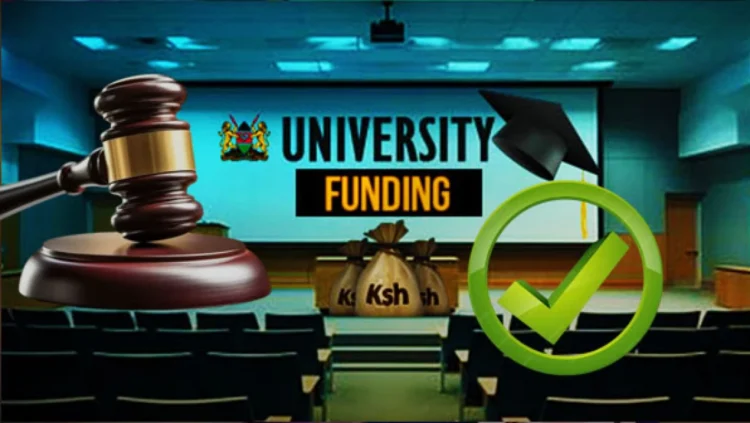Court of Appeal Reinstates New University Funding Model.
Over 400,000 university students, previously left in limbo after the suspension of the new funding model, have been granted a reprieve following a Court of Appeal decision to lift the freeze on its implementation.
The Court of Appeal in a Wednesday ruling halted a previous judgment that nullified the government’s new university funding model, paving the way for the reinstatement of the Variable Scholarship Loan Funding Model. The 2024 High Court judgment had labeled the student-centered funding model unconstitutional and discriminatory.
During a hearing before a panel of three appellate court judges, lawyers representing the involved parties reached a consensus on suspending the ruling issued by High Court Judge Chacha Mwita.
Justice Mwita had declared the funding model unlawful on December 20, citing the lack of legal grounding and public participation before its implementation. However, the appellate court, comprising Justices Patrick Kiage, Weldon Korir, and Prof. Joel Ngugi, ruled that the High Court’s judgment and orders would be stayed until the appeals were heard and determined.
The Attorney-General, the Higher Education Loans Board (HELB), and the Universities Fund Trustees were also directed to establish and publicize an appeals mechanism for students dissatisfied with the funding categorization. The judges ordered that this mechanism be communicated to all students and stakeholders within 14 days.
In his initial ruling, Justice Mwita had raised concerns about the absence of a clear appeals body, stating that its structure and procedures remained undefined. He cautioned that such a body could function arbitrarily, making decisions based on subjective discretion.
The parties involved further agreed that students and stakeholders should be made aware that the funding model might be adjusted depending on the appeal’s outcome. To facilitate the temporary appeals process, the respondents were permitted to conduct a limited public participation exercise appropriate to the urgency of the situation.
Additionally, the appellate court ordered that the case be scheduled for priority hearing following the judges’ recess in April.
Challenge by Rights Groups
The Kenya Human Rights Commission, Boaz Waruku, the Elimu Bora Working Group, and the Students’ Caucus had challenged the funding model, arguing that it shifted the government’s responsibility of providing education onto parents, many of whom were already struggling to afford school fees.
Justice Mwita had emphasized that there was no dispute over the lack of public participation, despite the significant changes introduced to higher education financing. He asserted that bypassing public engagement in the model’s implementation contravened Article 10 of the Constitution.
Read Also: Govt Paid Millions to Private Universities for KUCCPS-Unplaced Students – Audit
According to the ruling, public participation was essential to ensure that affected individuals had a say in decisions impacting their lives. The judge also stated that the recommendations of the Presidential Working Party should have undergone public consultation before being enforced.
In response, the government defended the new funding model, arguing that the previous system had become ineffective, as it failed to account for the costs of postgraduate programs and generalized university funding without considering the specific challenges of each institution.
The Ministry of Education maintained that the revised model aimed to support the most vulnerable and needy students, who had previously been denied financial aid while others from more affluent backgrounds continued to receive assistance.
Court of Appeal Reinstates New University Funding Model.



Discussion about this post